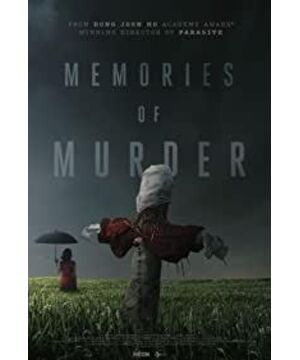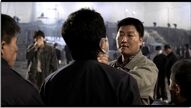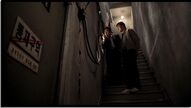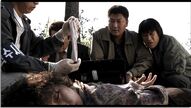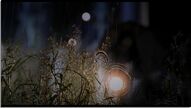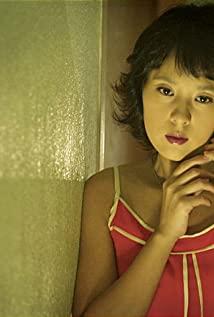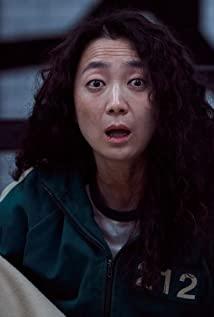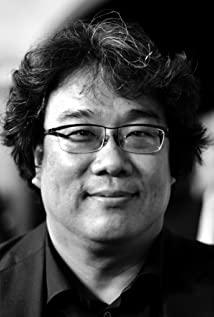As a crime genre film, Memories of Murder seems to be incomplete in its story structure. Generally speaking, the narrative focus of crime films focuses on the process of police detectives catching criminals and preventing them. Whether the criminals are finally caught is the biggest suspense that attracts audiences to this type of film. However, "Memories of Murder" stands out in the handling of this suspense. At the end of the film, Detective Park passes by with the real murderer. The murderer is still at large, but the story ends in Detective Park's astonished eyes.
Obviously, this open ending has greatly challenged the audience's traditional viewing experience and even moral concepts. Did the murderer fail? Presumably most people find it difficult to accept this setting anyway, because it seriously threatens their consistent beliefs and expectations for justice and order. In this respect, the ending of Memories of Murder is profoundly subversive and modern. We can't say that the story is half-finished, on the contrary, this powerful ending makes the theme of the film sublime and perfect.
Korean films have always adhered to a sense of realism in the development of genres and commercialization in the past ten years. Crime films based on realistic themes and real events are a major feature of Korean films, and Koreans call them For "Faction", that is, the combination of documentary and fiction, based on real crime events in real life or based on real people as the prototype of the film adaptation. Such films are as close as Na Hongzhen's "The Chaser" (2008), as far as Bong Joon-ho's "Memories of Murder" (2003), and so on.
"Memories of Murder" is based on the serial rape and murder cases involving women in the area of Hwaseong, Gyeonggi-do, South Korea from 1986 to 1991. In the period of 4 years and 7 months, the criminals committed 10 murders one after another, but they were not caught in the end. By April 2006, the fifteen-year statute of limitations for the tenth case had expired, and even if the criminals were arrested in the future, they could no longer be tried. Therefore, this serial murder case has really become a dusty history—a period of "murderous murder." Memories".
Based on true events, respect for historical truth is one of the reasons for the film's open ending, but not all. More importantly, we should also note that Bong Joon-ho, who has a background in sociology, studies this story as a social issue.
South Korea's economic development started in the 1960s, before millions of South Koreans struggled with poverty and unemployment as South Korea's infrastructure was devastated in the Korean War. Since President Park Chung-hee took power in 1963, successive South Korean governments have prioritized economic development and implemented an "export-led" economic development strategy. Since the 1970s, South Korea has entered a period of sustained high-speed economic growth and has become one of the "Four Asian Tigers".
But little known to the outside world behind the "miracle" is the military dictatorship that went hand in hand with industrialization and economic boom. In 1961, Park Chung-hee (the father of Park Geun-hye), who was a soldier, launched a military coup to overthrow the Democratic Party government headed by Zhang Mian, and implemented a military dictatorship based on the military regime. Park Chung-hee was re-elected as the 5th to 9th president, and held the South Korean regime for 16 years. During his tenure, he ruthlessly suppressed the opposition party and the workers and student movements. In 1979, Park Chung-hee was assassinated, and Chun Doo-hwan followed his example in a military coup to seize power. In May 1980, Chun Doo-hwan, who had come to power shortly after, ordered the suppression of the pro-democracy movement in Gwangju, resulting in the "Gwangju Massacre" that shocked the world. In 1987, Chun Doo-hwan was forced to resign and put on trial under the revolt of the people and pressure from the United States. In December of the same year, South Korea began its first direct presidential election. Roh Tae-woo won the election and was elected president. Since then, South Korea has begun the process of democratization.
It is not difficult to find that the story background of "Memories of Murder" is set at a sensitive node. The prologue of the film reminds the audience that Detective Park first saw the female corpse on October 23, 1986. This is a date that can be interpreted with multiple meanings - 1986 is not only the starting point of serial murders, but also the date when the dictatorship of South Korea entered the countdown, and it is also a transition period for South Korea to transform from an agricultural society to an industrial capital society. In the video, the film emphasizes the juxtaposition of rice fields and factories, which is a true portrayal of the transformation period of Korean society.
For the murderers who committed this series of horrific crimes, we should examine them in the context of a larger era. The reason why the "Han River Miracle" is called "Miracle" is because the industrialization process completed by Western countries in nearly a hundred years, South Korea only took 40 years (1953-1996). While enjoying the fruits of this economic leap, South Korea has also paid a heavy price for this. Industrialization, as the core content of modernization, cannot be narrowly equated with industrial development. It is accompanied by social transformation and adaptation. The history of human society is a progressive history of social change. If social change is a slow process, then transformation is a "thrilling jump" in social change, that is, from the original development track to a new development track, This will bring about brand new changes in people's ideas, production methods and lifestyles. South Korea's problems during this period were precisely due to social transformation. To a large extent, industrialization and urbanization have had a strong impact on the values of traditional Korean agricultural society. On the one hand, the lower-class people, who account for the majority of the population, are stimulated by the market economy and have a strong desire, but on the other hand, it is difficult to enjoy economic development. In addition to the government's neglect and violent repression of the people's demands, social contradictions have arisen from this, and one of the symptoms is sexual repression.
The murderer's method of committing the crime in the film has obvious characteristics-the victim women are mostly tied and strangled by their own clothes such as bras and stockings, and then abandoned in the field, and various foreign objects are also found from the victim women's genitals. These characteristics outline the murderer's motive: he is extremely eager for the opposite sex and sexual behavior, but for some reason he cannot approach the opposite sex, which leads to a morbid psychological distortion. The reasons are not clearly given in the film, but it is not difficult to guess - the objectification of women in society (red clothes, love songs, pornographic journals, young ladies) stimulates the desire of men, but this desire Because of conflicts with traditional conservative values and low living standards, there is a lack of venting channels.
It is worth noting that the film implies that our sexual repression is not an individual situation, but a generally representative social psychology. This is more or less reflected in the suspects who were arrested - mentally retarded Bai Guanghao often follows young and beautiful women; worker Qiao Bingchun uses murder reports to satisfy his sexual fantasies; young Park Hai plays on-demand on rainy nights A sad love song. What's more, even the detectives who hunt down the real murderer are not necessarily clean. An obvious example is when Qiao Yonggu was chatting with Detective Park and asked "is it true or false that college students have promiscuity in their rooms?" , his inner thoughts are evident. To a certain extent, we can say that although they are not the real murderers, they are not completely innocent, and even we have reasons to suspect that these multiple murders are not all committed by a single murderer. As a concept and a symbol, a pretense to escape crime and confuse the outside world.
Having said that, we can conclude another important reason why the film's ending refuses to explain the true identity of the murderer - the film is not aimed at a psychopathic individual, but at the society that breeds this kind of psychopathic psychology. Naturally, how can an individual represent the whole society, and the identity of the murderer is not identified, which makes the audience turn back and re-examine the background of the times conveyed by the film, and indirectly and implicitly achieve the purpose of criticizing the society. The criticism of the society is also expressed in the incompetence and inefficiency of its police system, which is precisely due to the imperfect conditions for handling cases (as Detective Park said, in the United States, people use their brains to handle cases, and in places the size of Korean dicks, they use their feet to handle cases. ), resulting in slow progress in the detection of the case, the murderer could not be arrested for a long time, and he could only be allowed to go unpunished and continue to commit the crime. The incompetent police and government system are to blame for indirectly contributing to the tragedy. Since the author mentioned this in another article, I will not discuss it further here.
In addition, we should also note that director Bong Joon-ho's sense of social responsibility as an artist also makes the film tend to adopt an open ending in the story design.
At the end of the story, the film advances the camera to many years later, the original serial murder has become a dusty memory, and the relevant characters have been washed away by the torrent of time. Detective Park left to go into business, have children, and lived an ordinary life, but he still had a thorn in his heart that was aching but he didn't dare to touch. This sting drove him like a moth to the flames, back to the beginning of the story, back to the beginning of his life that brought him irreparable pain.
The golden rice fields are still full of plentiful ears of rice, but the playful children are nowhere to be seen. What happened to the parrot boy? Has he grown up? He must be an adult too. What kind of person will he be? I hope he doesn't repeat the mistakes of his parents.
Detective Park stood in front of the ditch covered by the cement board and paused, the scene of that year was vivid in his mind, as if the corpse of the tragically killed woman was still hidden underneath. An inexplicable fear suddenly flooded the audience's heart. Detective Park leaned down and looked around, the bottom of the dry ditch was empty, and the female corpse was no longer there, which made one heave a long sigh of relief.
But then a childish voice pulled the whole story into an irreversible dark abyss. The little girl who came home from school saw Detective Park and went up to ask curiously: What are you looking at? Detective Park got up, looked at the little girl and said vaguely: Nothing, just look. The little girl said: It's strange. A few days ago, someone looked down. I asked him the same question. He said that he remembered what he had done here before, so he came back to have a look. Those words hit Detective Park like a bolt from the blue, but he couldn't do anything until now. Detective Park was unwilling and still had a glimmer of hope to ask: What does he look like? The little girl said softly: Just like ordinary people. The stunned Detective Park was completely overwhelmed, and after escaping for so many years, he still couldn't escape this trauma in the end. Immediately, he turns around, as if inadvertently colliding with the audience's gaze, and the camera freezes in the mind-blowing gaze of Detective Park.
The tension of the plot reached its climax here. Detective Park could not hide his inner despair and grief. This was not something he could bear alone, nor should he bear it alone, so he turned his attention to the audience, as if in Say to the camera: I know you've been watching me, but do you really feel my pain?
The scene echoing the beginning, the understated dialogue, the shot passing by the real murderer and facing the audience - this deliberate ending reveals the creator's intention and direction. History should not be forgotten, the numb people must stay awake, the female corpse under the rice field has not disappeared, it has turned into dust and once again nourishes the land on which we live. This golden and heavy ear of rice grew up from this land, just as the parrot boy grew up from this land, and just as our world today grew up from that dark history of. The murderer has never been annihilated with the pace of history. As long as we are still unwilling to wake up and face our mistakes, he will follow us like a cloud, shrouded in our hearts and hidden by our side.
Finally, Memories of Murder is a modern film. On the one hand, the biggest characterization of modern film and television art is that "it does not advocate to analyze reality to the audience, but to show the reality in front of the audience and let them analyze it themselves". The open ending of "Memories of Murder" encourages the audience to participate in the construction of the meaning of the story, providing the audience with greater satisfaction and artistic enjoyment. On the other hand, the rich semantics of open endings can convey more diverse thematic ideas, which best caters to today's era of increasingly confusing values.
Open endings have been widely advocated since the Neorealist films after World War II and later life-streaming films. The films "Bicycle Thief" (1948) and "The Four Hundred Blows" (1959), still widely acclaimed to this day, are typical examples of early open endings. Whether people like it or not, we shouldn't be surprised that open endings exist and are becoming more abundant.
View more about Memories of Murder reviews


